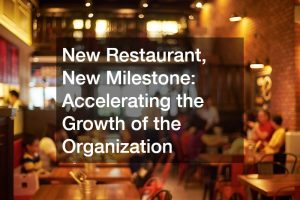No doubt, parenting is stressful, but can it be exhausting enough that it leads to burnout? Many reports say yes, and it’s a growing problem that needs addressing right away to prevent more complicated familial issues later.
Fortunately, this problem has many solutions, which entrepreneurs and educators can take advantage of. For example, they can consider a learning center franchise opportunity that provides excellent child care when parents need to handle other responsibilities or rest.
But first, how severe can parental burnout be, and what are its effects on the family?
What Is Parental Burnout?
There’s a clear distinction between stress and burnout. Parental stress is prevalent, but its biggest difference with burnout is the level or severity of exhaustion.
Although research about the topic is just getting traction, some data suggests that up to 20% of stressed parents experience parental burnout. When they are physically and mentally exhausted, they have a much harder time managing the stress and the overwhelm. In turn, the negative feeling stays for a much longer period than parental stress.
What can cause parental burnout? Earlier, experts think that it occurs only on parents taking care of sick or disabled children. However, as studies appear, the reason can be a single but significant factor or a combination of factors:
1. Juggling Multiple Responsibilities
This factor usually affects mothers more than fathers since society still dictates that women have to take care of the children and manage the household.
Over the last decades, more women are joining the workforce. In 2019, about 57% of females between the ages of 16 and above had jobs.
The number is more likely to increase as what was considered as man’s industries begin to open their doors to women to augment their workforce. A good example is trucking.
And yet, over 50% of parents said that mothers remain the household’s primary caregivers, according to a CNBC survey. This is even though women still face plenty of challenges and stressors in the workplace. In 2016, the US Census Bureau revealed that women earned lower wages than men in all states and DC even if women perform the same amount of work.
2. Fear of Losing One’s Identity
In Abraham Maslow’s hierarchy of needs, the highest component is self-actualization—that is when a person can live their purpose. That’s the biggest achievement a human can get, so to speak.
While motherhood and marriage can give a woman’s life deeper meaning, many desire to accomplish other things for themselves. But their other roles can make it challenging.
Compared to men, women are more likely to leave their jobs once they have children. In fact, the percentage can be as high as 43%. Although 70% would eventually go back to work, fewer than 45% would take a full-time job.
The United States makes paid maternity leave optional, forcing women to either return to their jobs as soon as they give birth or leave the workforce entirely to focus on child-rearing.
Motherhood can also indirectly increase the pay gap between genders. Unlike men, women may postpone skills upgrading or further education to provide them with more opportunities to get a promotion or a better-paying job.

The Effects of Parental Burnout
The consequences of parental burnout can be severe. According to a 2019 research in Clinical Psychological Science, it may increase the risk of:
- Parental neglect
- Escape ideation
- Violence against children
A 2020 study that focused on parental burnout at the COVID-19 pandemic also shared similar results. The research, published in the Journal of Family Violence, cited a correlation between burnout and suicidal ideation, estrangement with their partners, and higher levels of conflict and child abuse. The association remains even if the team considered other factors like education and income.
What Can the Country Do?
Parents, especially mothers and single parents, need all the support they can get to cope with stress. This way, it doesn’t worsen to burnout. Here are some ideas:
- Make childcare more accessible not only in terms of location but also costs. Educators or business owners can invest in a childcare learning franchise for their local area, so parents wouldn’t have a hard time dropping off their kids.
- Companies can consider offering childcare-centric benefits. If they cannot provide a childcare subsidy, they can extend a flexible working arrangement for parents.
- Meanwhile, the country can learn a lot from Iceland, which experts tout as a country with the best gender equality strategy. Fathers, for instance, have three months’ worth of non-transferable parental leave. This helps men contribute to child-rearing while narrowing the wage and workplace gender gap.
Parents account for a significant percentage of the workforce, and they are the country’s partner for building an ideal society. For these reasons, everyone may need to play their role in reducing or preventing parental burnout.







